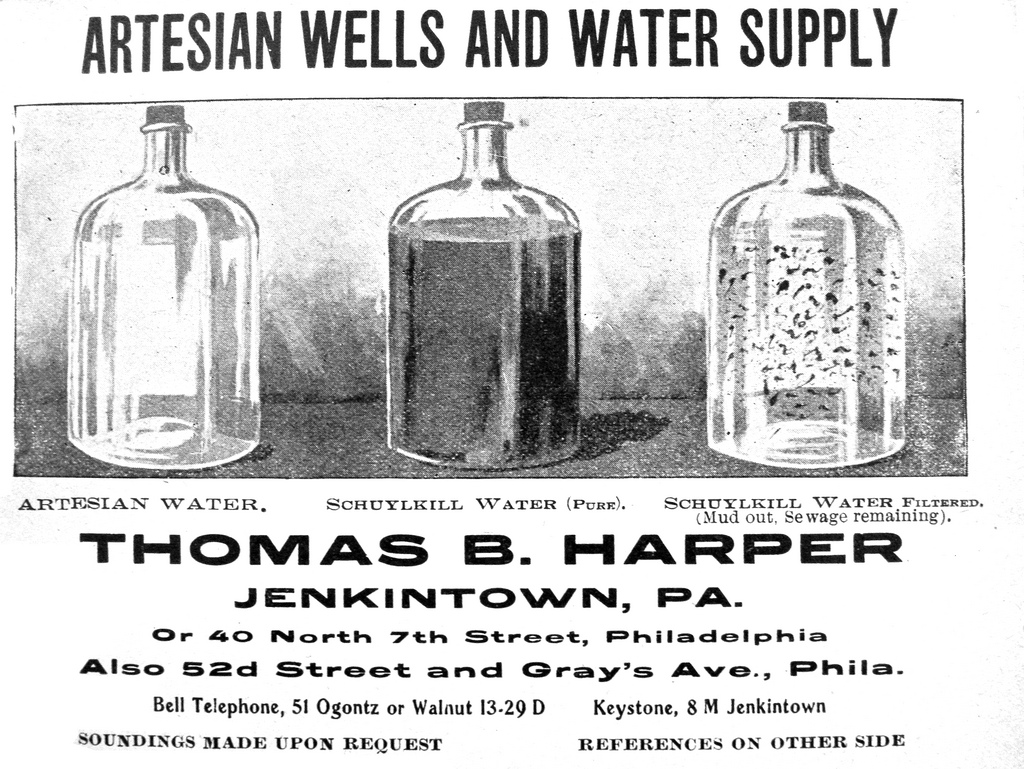
This bottled water advertisement was printed in the 1906 edition of Boyd's Co-Partnership and Residence Business Directory of Philadelphia City, a predecessor of the modern phone book.
Before Philadelphia’s filtered water treatment and distribution system was completed in 1909, City water had the potential to carry a variety of water-borne illnesses. Many diseases were caused by the bacteria-laden sewage that was being dumped, with no disinfection or treatment, into the same rivers (the Delaware and Schuylkill) from which the drinking water supply was drawn. The most common of these illnesses, typhoid fever, was especially virulent in 1906, killing more than 1,000 people and sickening perhaps ten times as many.
This spring water company is clearly using this tragic situation to drum up business. Its illustrations, however, are misleading. On the right, any “sewage” in the city water would not be visible, although still deadly. And just because water comes from a spring, and looks clear, as shown on the left, does not mean it is not also contaminated.
Before water filtration, it was not uncommon for the Philadelphia Water Department to recommend (via newspaper articles and other publicity) that any water for cooking or drinking be boiled to kill any disease causing bacteria. Today, the filtered water supply is tested continuously, while bottled waters are not, which is why Philly Water straight from the tap just might be the safest option. At about a penny per gallon, it is certainly the cheapest!